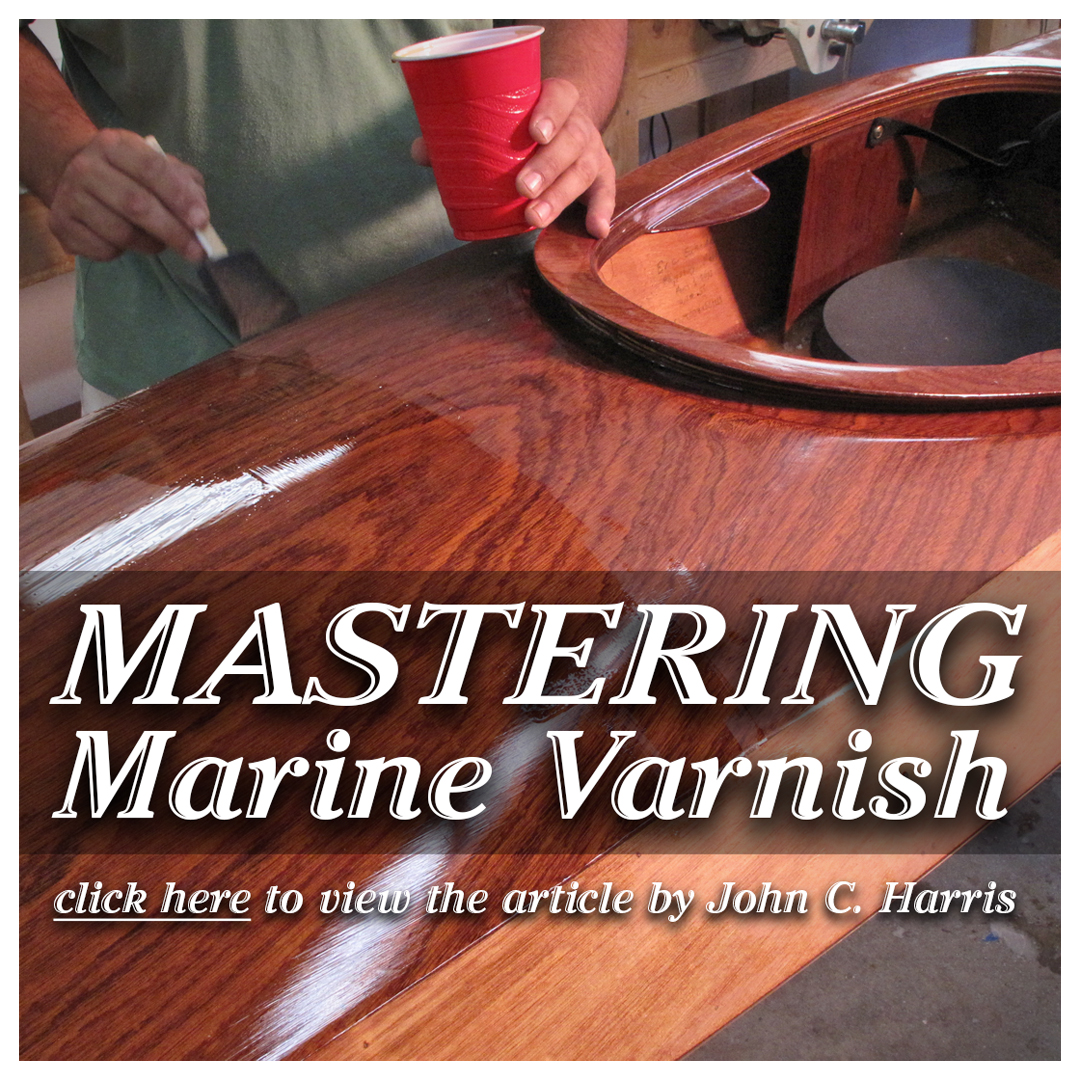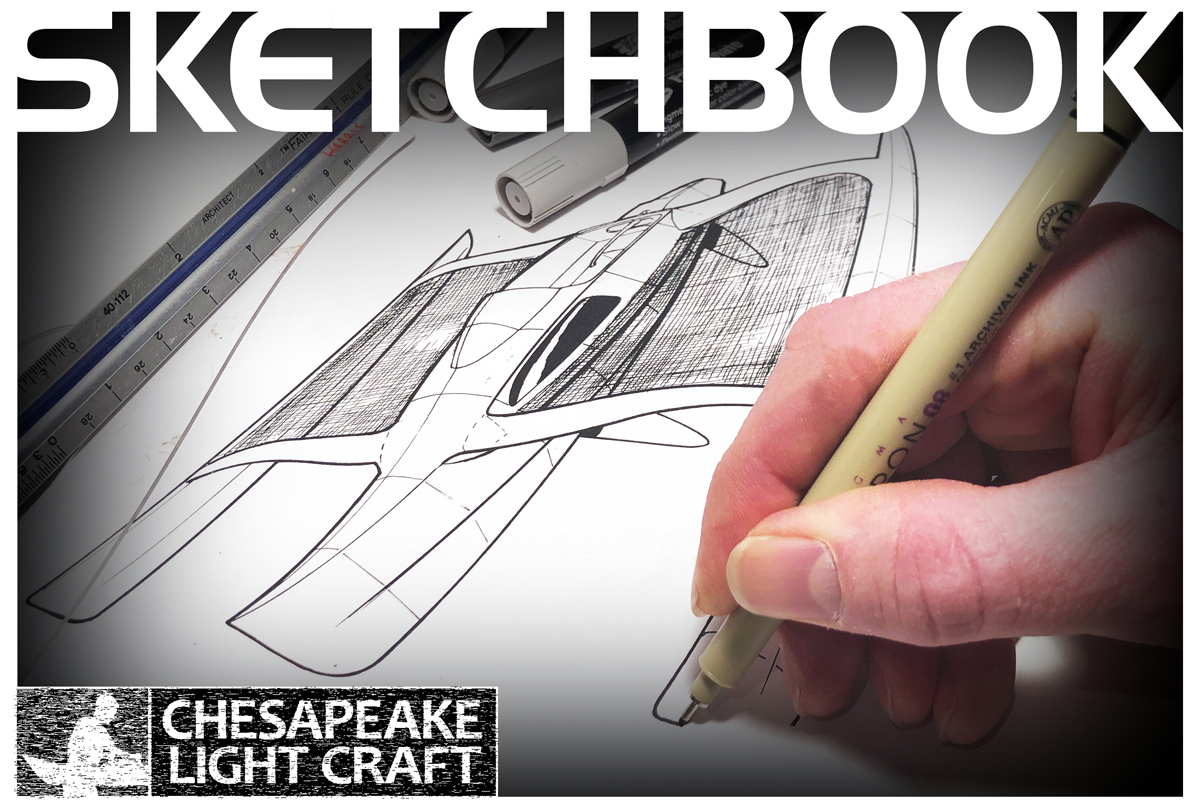Builders' Forum |
|
| ↓ Scroll to Last Comment ↓ | Forum Guidelines | Builders' Forum | |
I'm building my first boat, Eastport Pram. I have finished epoxying the planks and am now startng to remove the copper wires. Most of the holes drilled in the planks to hold the wires are now covered with (dried) epoxy, so removing the wires are difficult and some of the epoxy around the holes comes-up in the process. Is this normal / ok?
7 replies:
RE: removing wires after gluing
Simple way to remove wires from dried epoxy is to heat the end sticking out with a torch. It doesn't take much heat and they will slide out like they were in butter, leaving a minimum hole behind. The hole will be filled with resin as you continue finishing the boat. Jer (aka mtsailor) http://gallery.me.com/jermcmanus
RE: removing wires after gluing
Thanks for the quick, good advice; I will proceed with the torch method. I only pulled out two wires before I decided to stop and ask the question, so no harm. I plan on just painting the outside hull anyway (not varnish).
I assume the epoxy around the 'laps' gets filed/sanded (cleaned-up) in subsequent steps of the boatbuilding process?? So a small chip (from the removal of the wires) or blemish (from imperfect epoxy application) in the epoxy is not the end of the world?
Thanks again.
RE: removing wires after gluing
Eric --
Jerry's fix sounds pretty slick. I would recommend constructing a test joint with scraps, and then practising -- if things go wrong, much better that it be with a test strip!
But if you're planning on painting anyway, clipping and smoothing probably is the easiest, and poses the least rsik of damage.
In either case, you can easily fix chips and dents and depressions with epoxy. Make sure the surface is clean (I don't use soap or any similar cleaner, just use water and acetone, but that's just my home remedy) and not contaminated, and wet the surface with unthickened epoxy. Overfill slightly, and sand it down after it cures.
RE: removing wires after gluing
Jerry's right -- removing wires is not a big deal. A little heat will soften the epoxy so you can pull the wire with needlenose pliers. If you don't have a torch (or if you don't want to play with fire that close to your boat) you can use a soldering iron or even a CLEAN hot melt glue gun-- i.e. one of those cheap little electric glue gun gizmos that take you can find in a craft store -- minus the glue stick. I've used that --it gets things hot enough so you can get stubbornly embedded wires out, but not so hot to leave marks on the boat if your hand slips while you're applying heat.
Julie K
RE: removing wires after gluing
Me again..... the 'torch method' worked great.
Another question from the rookie.... I noticed the transoms have a couple areas of epoxy that leaked from the planks. I assume I can use a Dremel-typle cutting tool to cut through the cured epoxy between the transom and the planks, so I can better position the transoms before I fillet them?
RE: removing wires after gluing
A Dremel tool is very handy for removing unwanted epoxy. I used mine to cut away excess cured resin in the hatch openings. Just don't let it get the resin too hot or it will gum up the tool bit.













RE: removing wires after gluing
» Submitted by Jim C - Sun, 8/2/09 » 1:38 PM
Stop!
You're past the point of no return for the best -- only? -- feasible way of removing the wires. But that's not so terrible, provided you don't create far more major problems trying to yank out wires buried in cured epoxy. First of all, how are you going to finish that portion of the boat? If you'll be painting, the wires don't matter; just clip them off, file them flush, and move on. They're copper, they won't rust even if water gets to them. If you're going to varnish, you can leave the wires in place, just clipping them off and filing them flush. They'll be visible, but only barely.
But if you start pulling up epoxy -- or wood -- while trying to remove wires already epoxied in place, you've got far larger problems to deal with, and blemishes are sure to result, so you'll be painting anyway.